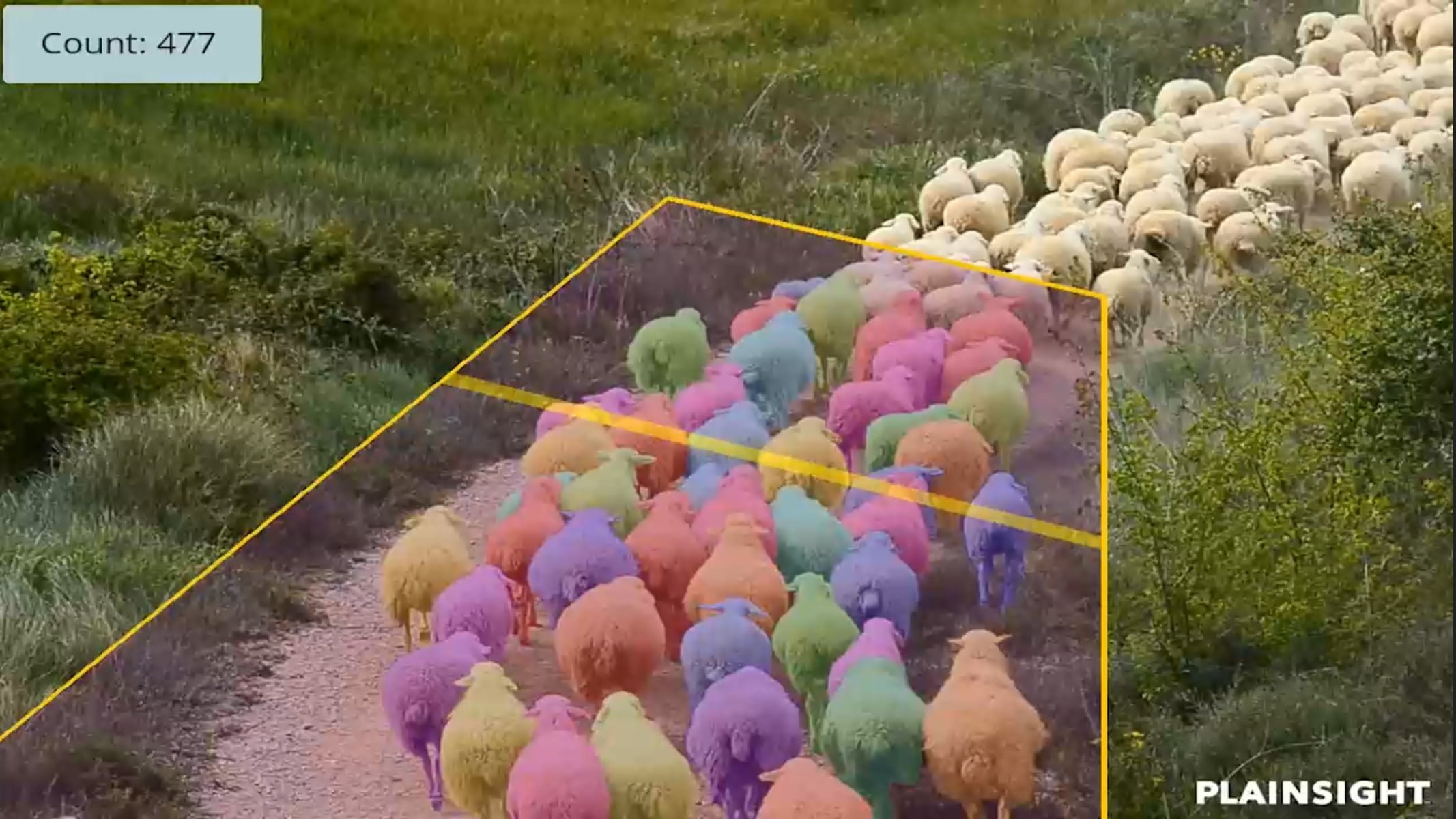A computer vision AI startup shows how artificial intelligence is being used in agriculture. The potential is huge.
Founded in 2007, AI startup Plainsight specializes in AI algorithms for image recognition. It develops computer vision solutions for agriculture, logistics, restaurants, pharmaceutical manufacturers, the energy sector and construction.
In April, the company launched Plainsight Vision AI, an on-demand SaaS platform for computer vision workflows that requires no programming skills. Customers can label their own image data there and then train matching AI models from Plainsight. The company says it lowers the entry barriers for small clients who first want to test whether AI adds value for them.
Count sheep, detect disease
In the livestock industry, Plainsight's products are said to enable automatic counting of livestock such as sheep or cattle herds with 99.7 percent accuracy. In the supply chain, there are multiple counts going on at the same time that are normally done manually, says Elizabeth Spears, CEO of Plainsights. There are always situations where cattle are not counted accurately, she said. That can lead to fraud in transportation, for example.
Video: Plainsight
For an accurate count, Plainsight relies on manually labeled datasets that form the training basis for a specialized AI model that detects animals of interest. Another algorithm tracks animals between frames of a video. A monitoring area is then defined within a camera's field of view, along with a count line - any animal that crosses this line is counted.
Computer vision can also be used to determine if an animal is sick, Plainsight says. The animal's gait or eating patterns allow conclusions to be drawn about its state of health. Changes can be detected by AI systems.
AI tracking for ripeness of fruit.
In addition to tracking animals, Plainsight also markets computer vision for agriculture: for plant breeding, there is automatic ripeness detection that tracks individual strawberries, for example.
Video: Plainsight
During harvesting, the AI systems are also designed to detect foreign objects such as stones in the harvesters and thus prevent damage.
Video: Plainsight
In the field, AI could track plant population, estimate volume, measure plant health and productivity, and detect diseases, invasive species, and pests.
AI thus provides real-time insights into fields and helps identify areas that need to be irrigated, fertilized or treated.
AI in agriculture is a growth market
Plainsight's automated livestock counting system is already in use, and the idea came from the agriculture industry itself, Spears said. Indeed, agriculture offers great potential for AI: dozens of important processes need to be carried out and monitored, often over an area of several hundred hectares. AI can help monitor and control weather, sunlight, birds and insects, fungal diseases, plants, animals, irrigation and other processes.
Analysts therefore see the use of AI in agriculture as a major growth market: according to BI Intelligence Research, global spending on smart, connected agricultural technologies and systems, including AI systems, will triple to $15.3 billion by 2025.
Markets&Markets sees a compound annual growth rate (CAGR) of 25.5 percent for AI technologies in agriculture and expects spending to increase from $1 billion in 2020 to $4 billion in 2026. IoT-enabled agriculture monitoring (IoTAg) is expected to reach $4.5 billion by 2025, according to PwC.







